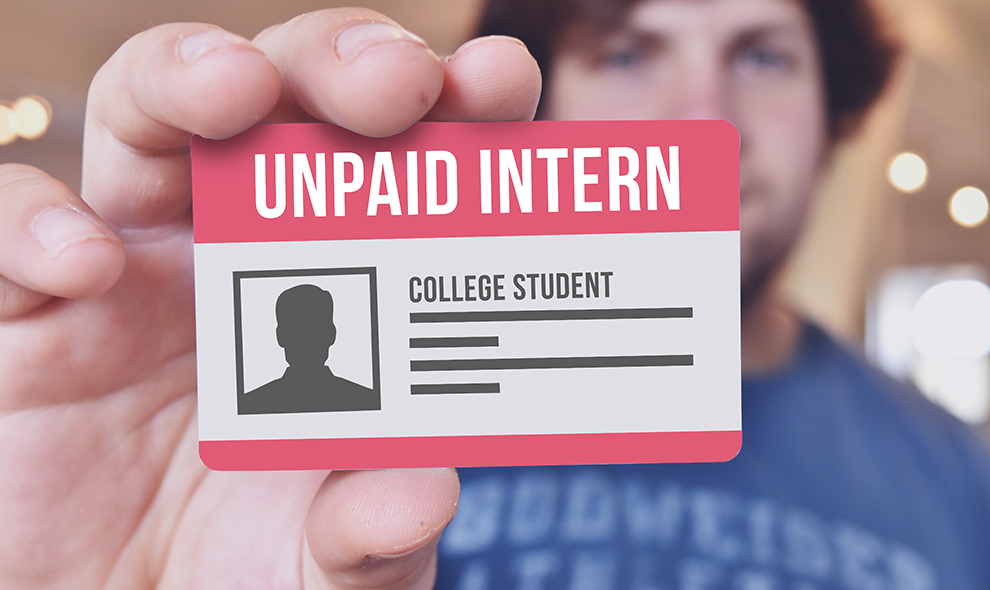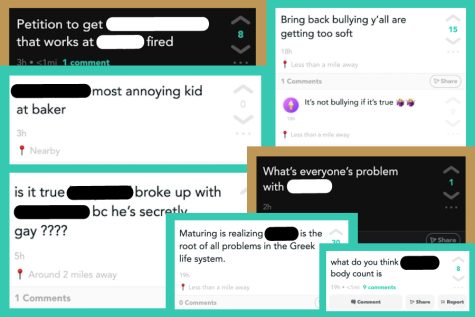The ethics of unpaid internships
Image by Maria Echeverry.
April 19, 2017
In today’s job market, a high level of experience in your desired profession is a vital feature on your resume. For most college students, the best way to gain this experience is through internships. As the summer months draw closer, students are beginning to decide if an internship will be part of their summer plan. This can be difficult because many internships are unpaid. This forces students to choose between money and experience – or attempting to balance both.
I now find myself facing that question, money or experience?
A 2012 article from The Atlantic<a href="https://www.theatlantic.com/business/archive/2012/05/work-is-work-why-free-internships-are-immoral/257130/">The Atlantic</a> says that &#8220;estimates put the number of unpaid interns every year between 500,000 and one million.&#8221; says that “estimates put the number of unpaid interns every year between 500,000 and one million.” The Atlantic says that “estimates put the number of unpaid interns every year between 500,000 and one million.”
Those numbers are nebulous because currently there are no official government statistics on the intern economy. A few research institutes conduct surveys of internship experiences, but there is no large statistical evidence that argues for or against unpaid internships. The majority of research conducted ends up highly situational.
I have applied for several internships in the greater Seattle area, and I am beginning to hear some responses. If I accept an unpaid position, this means I will need to find another job at a restaurant or in retail so I can save money for school in the fall.
In my home state of Washington, gas prices average $2.89 per gallon. My car holds 15 gallons and gets about 30 miles per gallon on the highway. After calculations, in order to work at my ideal internship, which takes an hour to travel to during rush hour, it would cost me approximately $490 in gas by the end of my internship experience. This number is less than half of the total cost of the unpaid college internship experience.
In order to receive college credit for internship work over the summer, students have to pay per credit hour. At Baker<a href="https://www.bakeru.edu/career-services/">At Baker</a>, to earn one credit hour you must work 40 contact hours and each credit costs $200. Students may earn up to six credits. , to earn one credit hour you must work 40 contact hours and each credit costs $200. Students may earn up to six credits. At Baker, to earn one credit hour you must work 40 contact hours and each credit costs $200. Students may earn up to six credits.
Unpaid internships are commonly justified by the experiential learning they provide that cannot be found in the classroom. While I do believe this is true, the overall cost to the student can be a lot to bear. The organization you are working for is benefiting from the labor and ideas you provide, while you have to pay to be there.
I work during the summer and save that money so I can use it during the school year and help pay for my housing and tuition. The thought of having to pay to work somewhere, while also working another job in attempt to save money for school, seems daunting.
However, there are some benefits to sacrificing your time and money. You are in a real work environment, and you work with professionals and other students who will one day be in the workforce with you. There is a new perspective gained in the working world when you spend time in that environment.
By working with people in your desired profession, you have a unique opportunity to build lasting connections. The connections you make during your time at the organization can set you up for future professional success. In fact, 60 percent of employers<a href="https://www.propublica.org/article/what-we-learned-investigating-unpaid-internships">60 percent of employers</a> expressed a preference for hiring applicants with internships on their r&#233;sum&#233;, and some organizations end up hiring interns as full-time employees when job opportunities arise. expressed a preference for hiring applicants with internships on their résumé, and some organizations end up hiring interns as full-time employees when job opportunities arise. 60 percent of employers expressed a preference for hiring applicants with internships on their résumé, and some organizations end up hiring interns as full-time employees when job opportunities arise.
Internships are also a great way to discover if the major and profession you plan on pursuing is truly right for you. You are only an intern for a short while. Internships create a safer, low-risk space for you to test out different career paths.
If you are a college student trying to decide whether or not to commit to an unpaid internship this summer, consider all options. Some of us are at a point in our college career where gaining experience is more important than the money. For others, maybe this summer is for saving.














